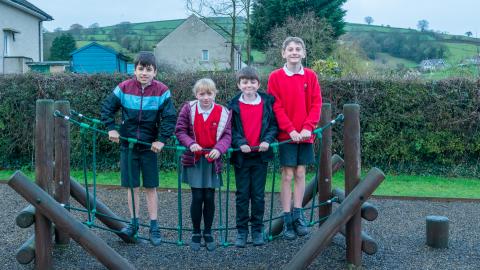Our PSHE curriculum aims to give children the knowledge, skills, and attitudes that they need to effectively navigate the complexities of life in the 21st Century. The curriculum covers key areas which will support children to make informed choices now and in the future around their health, safety, wellbeing, relationships, and financial matters and will support them in becoming confident individuals and active members of society.
Intent
At Cononley Primary School we use Kapow Primary’s PSHE scheme of work. The scheme is aligned to the requirements of the National curriculum (2014). It promotes the four fundamental British values which reflect life in modern Britain: democracy; rule of law; respect and tolerance and individual liberty. Quality PSHE and RHSE teaching is an important element in helping schools to carry out their duty of care with regards to safeguarding. (Keeping Children Safe in Education requires that Governing bodies and proprietors should ensure that children are taught about how to keep themselves and others safe, including online.) The scheme also covers the Relationships Heath and Sex Education statutory guidance (as set out by the Department for Education), including the non-statutory sex education.
In response to the child-on-child abuse updates to Part 5 of Keeping Children Safe in Education, our curriculum introduces and revisits ideas of personal boundaries, consent and communicating our boundaries with others. This prepares pupils for the challenges and responsibilities they will face in the future.
Implementation
Our curriculum supports the teaching and learning of PSHE to ensure there is a well sequenced and structured approach to learning from EYFS (through Personal Social and Emotional Development) to Year 6. Lessons are delivered using these 6 themes - Families and Relationships, Health and Wellbeing, Citizenship, Safety and the changing body, Economic Well Being and Transition. This approach ensures topics are logically ordered and take into consideration the changing needs and maturity of the children. Adaptations and enhancements are made to ensure pupils' changing needs and context is taken into consideration.
From EYFS to Key Stage 2, a two-year rolling programme is adopted to take into account the mixed age group classes within school. Each area is revisited to allow children to build on prior learning. The lessons also provide a progressive programme. The lessons are based upon the statutory requirements for Relationships and Health education, but where our lessons go beyond these requirements (primarily in the Citizenship and Economic wellbeing areas) they refer to the PSHE Association Programme of Study which is recommended by the DfE. Lessons are taught in discrete weekly lessons. An additional weekly session is provided for Circle Time. Lessons are adapted as necessary to meet the needs of all pupils, including those with SEND.
The PSHE curriculum is enriched in a variety of ways including:
- Co-operative Learning -a structured programme used throughout school to teach children strategies for working together and improving learning.
- Visits from the school nurse, police, fire service, Dogs Trust.
- Taking part mock general elections and a mock EU referendum
- Voting for house captains and school council representatives
- Y6 EYFS buddy system
- Fairtrade Committee
- Energy Monitors
- Taking part in themed weeks such as Anti-bullying Week, British Parliament Week, Wellbeing Week, Internet Safety Week.
- Whole school events to raise money for charities (SELFA, Riding for the Disabled, Comic Relief, Children in Need, MacMillan)
- NSPCC campaigns
Relationships and Health Education (statutory) and Sex Education (non-statutory)
Relationships and Sex education is taught during the themes 'Families and Relationships' and 'Safety and the Changing Body' in line with the DfE recommendations. Sex education is only covered in Year 6 and we define this as to know how a baby is conceived, develops and is born.
Parent/Carer Consultation
During the summer term 2023, a consultation was held for parents and carers about changes to our Relationships Health and Sex Education Policy and curriculum. Following the consultation, the policy and curriculum were finalised and are published on the website (see links below). Paper copies can be requested from the school office: admin@cononley.n-yorks.sch.uk.
Impact
Each lesson allows teacher to identify those who have met, exceeded or need more support to meet learning intentions for that lesson. Each unit then offers assessment quizzes to help measure progress and identify any gaps in learning. Gaps in learning are recapped and revisited at the start of lessons and sometimes individual pupils are recommended for specific interventions to support them. Pupil voice surveys and the biennial Health and Well-being Survey: Growing Up in North Yorkshire are also used to inform curriculum design.

